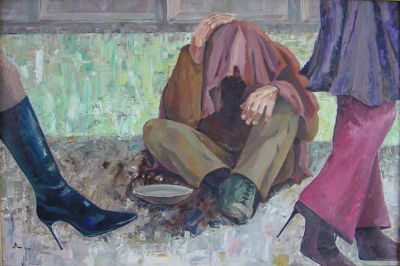by Adanna James
“… Oh listen Lord if you want to know…what the world needs now is love, sweet love. It’s the only thing that there’s just too little of …” Jackie DeShannon, US, 1965
“ Please give a helping hand oh Jah, …what we need is love, vice versa love …” Barrington Levy, Jamaica, 1993.
“…People killing, people dying, children hurt and you hear them crying …Father, Father Father help us, send some guidance from above, cause people got me questioning where is the love,” The Black Eyed Peas, US, 2003
Popular culture has a way of reminding us theologians and other academics that we’re always a step behind when it comes to discerning what society needs. Long before the anthropological shift in justice discourse advocating love as central to justice, artists were making connections between injustices in the world, the need for love as a way of countering them, and an appeal to a Divine Reality to make it all possible.
ANTHROPOLOGICAL SHIFT: PAYING ATTENTION TO OUR DARKER SIDE
While the connections made in academic theology prove more complex, there is a similar concern about the prevalence of injustices in societies today. This prompted philosopher Martha Nussbaum, in her 2013 Political Emotions, to question the taken-for-granted assumptions about the human condition undergirding dominant justice discourse. No longer should we assume that we, rational human beings, would simply act in accordance with the demands of justice once it could be seen that an ideal situation of fairness was being maintained for the benefit of everyone’s individual pursuits, as was broadly assumed in the dominant justice discourse. Nussbaum sees another side to us human beings, a side we rather refuse to see: those aspects of our animal nature which remind us of our helplessness, vulnerability and mortality. It is precisely this refusal – or ‘anthropodenial’ as Nussbaum calls it – that is often responsible for tendencies such as narcissism, anxiety and disgust for and stigmatisation of others. This same emphasis on the denial of our vulnerability and fear of difference is shared by theologian Thomas Reynolds in his 2008 Vulnerable Communion as he writes on the topic of disability. But whereas Nussbaum focuses more on individual human beings and our emotions, Reynolds highlights networks of relationships. He speaks of the ‘cult of normalcy’ that works to establish standards of what is normal, at the same time denying vulnerability.
LOVE AS ANTIDOTE
Both authors however, make the case for love. “Love is what gives respect for humanity its life,” writes Nussbaum (2013:15). Reynolds, in a similar vein, comments: "Love is the relational power that animates belonging together, It gives and receives life, and the process radiates joy" (Reynolds 2008:119). He further states that to counter the effects of marginalisation and exclusion of difference, love must be measured by an empowering justice that makes way for more love. Reynolds, however, pays more attention to our relationships and the necessity of being in vulnerable connection to each other. “Love involves welcoming another into a space of mutual vulnerability” (Reynolds 2008:119). Such an encounter is one of immediacy, a concept he takes from existentialist philosophers like Gabriel Marcel and Martin Buber and uses to emphasise the mutual exclusiveness of ‘becoming involved’ as opposed to ‘objectifying another’.
I think both Nussbaum and Reynolds bring interesting thoughts to the table on making love public. Perhaps if we were to reflect on a specific example, for instance, the recent tragic happenings in Paris, we could better see what both authors contribute to the debate on love's public significance.
NUSSBAUM’S PUBLIC EMOTIONS
Looking at the recent terror attacks in Paris, we could say that it was possible that Parisians as well as non-Parisians worldwide, seeing these media images, could identify with the vulnerability of the victims. These images captured the shooting and killing of a police officer and terrorist, frightened hostages running and screaming, flowing tears of loved ones. The responses to these images and reality were profound. Among them, mass demonstrations congregating persons of different cultural, religious and ethnic backgrounds under the banner (even if just for a day) of Liberté, Egalité, Fraternité. Nussbaum’s theory of love being a powerful motivator in upholding the tenets of justice could find resonances here.
REYNOLDS’ CULT OF NORMALCY
At the same time, the response borne out of fear of vulnerability, visible in Reynolds’ ‘cult of normalcy,’ could be seen in numerous events and discussions surfacing after the event, including PEGIDA marches against the Islamisation of Germany. It seems in that instance that an objectification of the other stood in the way of immediacy of encounter. There was no recognition of mutual vulnerability that could result in openness to others, compassion and fidelity.
REYNOLDS’ LOVE AS WELCOMING THE OTHER INTO A SPACE OF MUTUAL VULNERABILITY
But I’d like to highlight one example that shows the power of immediate encounter in mutual vulnerability. A BBC report looked into how the terrorist attacks were being interpreted within the French school context, particularly in predominantly Arab immigrant communities. Some teachers spoke of the difficulties in generating empathy among the students for the victims of the attacks. "Twelve people were killed…it didn't mean much to them," one teacher remarked. But an interesting dynamic was noted when the minute of silence was observed. Unlike the previous time when the minute of silence was not respected by students in various schools, (after the 2012 killings in Toulouse and Montauban by a radical Islamist) the called-for silence was instructed to be observed in schools only after prior discussion was held (on the instruction of the Education Ministry). One teacher confessed that she was unable to hold back her tears during these discussions. The result: silence. It appears that the teacher’s display of vulnerability brought students into a space of mutual vulnerability, opening them up to her as well as the people she spoke about and cried for. It is precisely through such encounters that a compassionate feel for the injustices that lie beneath the objectifying gaze that separates us from each other can be nourished.
My suggestion finally is this. Before moving too quickly to discussions of press freedom, migration, religion and the Enlightenment, perhaps a deeper, public engagement of our vulnerability as it presented itself to us during the days of the attacks will help steer discussions, decisions and actions in more just ways. Our artists, after all, do seem to know what they’re singing about… “what the world needs now, is love, sweet love….. “
Henri Astier, “Charlie Hebdo Attack: French Values Challenged in Schools.” BBC News Paris, January 30, 2015 http://www.bbc.com/news/world-europe-31027152 [accessed February 3 2015].
Martha Nussbaum, Political Emotions: Why Love Matters for Justice. Cambridge: Belknap Press, 2013
Thomas Reynolds, Vulnerable Communion: A Theology of Disability and Hospitality. Grand Rapids, MI: Brazos Press , 2008.













